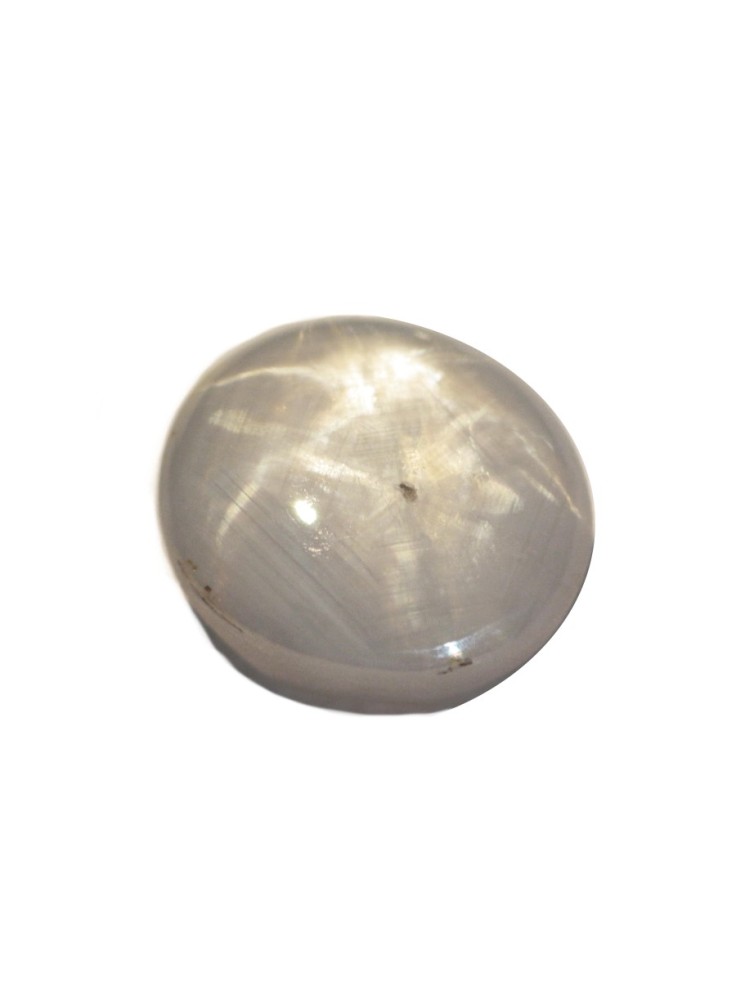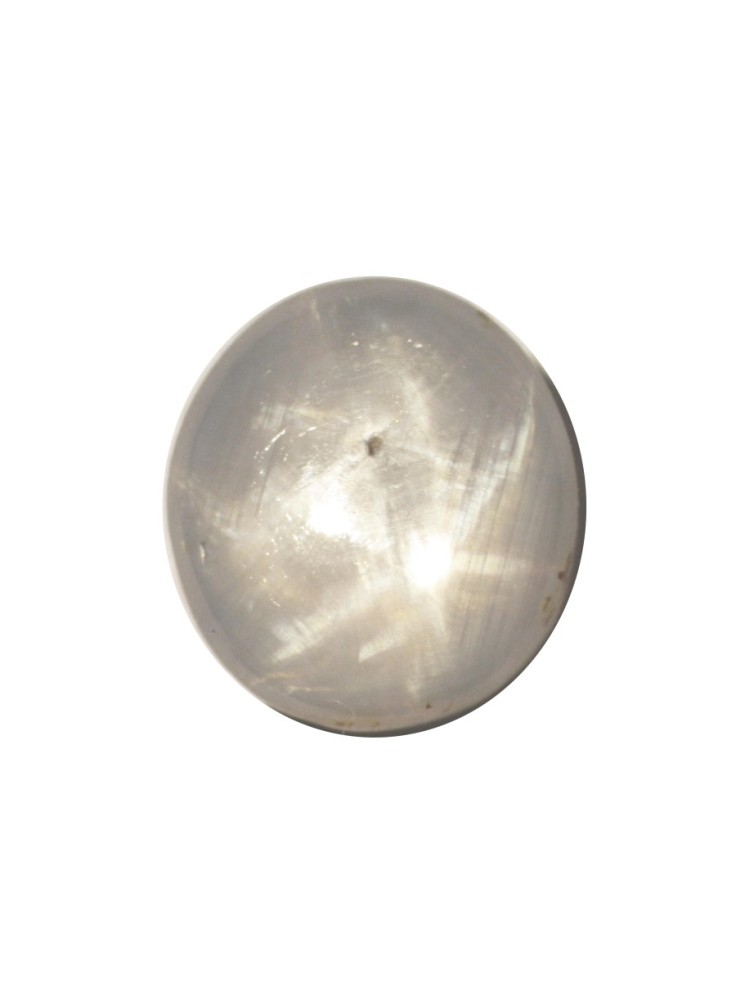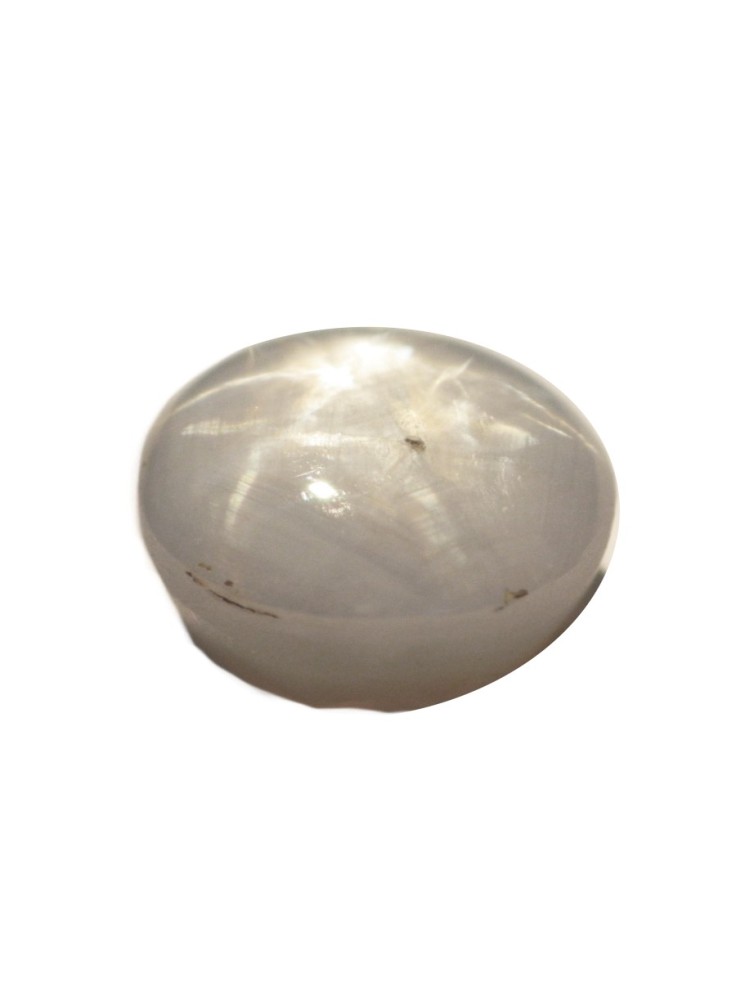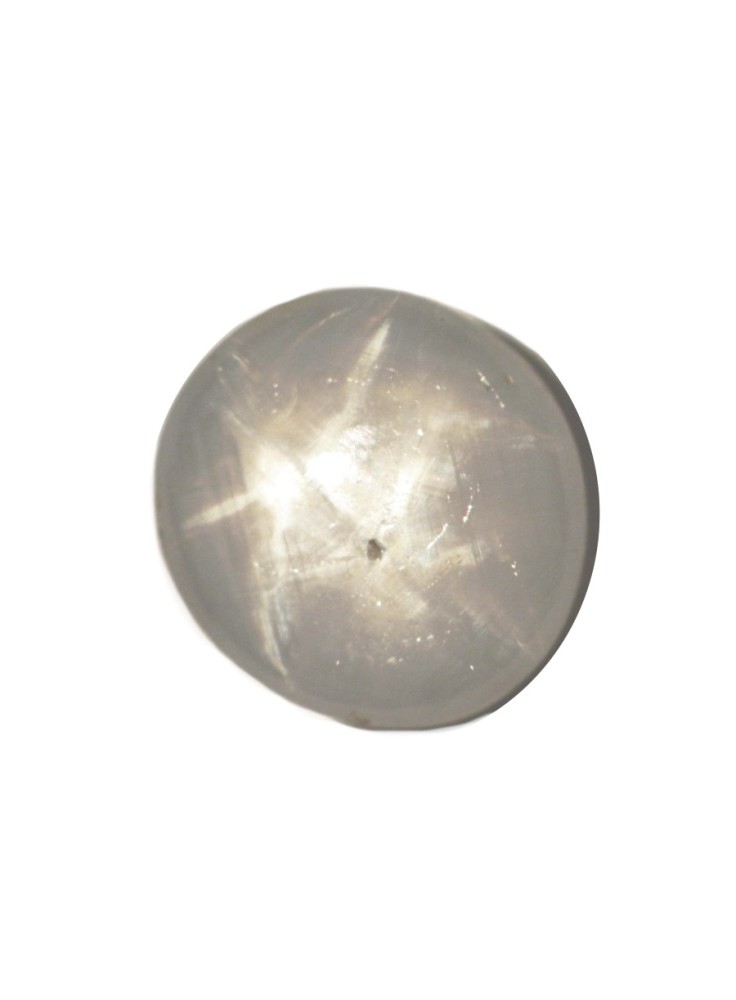
STAR SAPPHIRE DOUBLE STAR 2.92 Cts 19750 - RARE COLLECTORS GEM
| Product Code: | 19750 |
| Availability: | In Stock |
-
$99.00
| Carats | 2.92 |
| Size | 8 x 7.3 mm |
| Color | Light Grey |
| Clarity | TRC |
| Shape | Oval |
| Treatment | None |
| Origin | Sri Lanka |
| Location | Colombo, Sri Lanka |
| Price | $ 99.00 |
100% Natural - Not treated in any way.
Rare Collectors Gem
Suitable for Museums,Institutions and Students of Gemology.
Beautiful Center-stone for an engagement Ring.
Beautiful sharp Star effect.
A Gem of Lasting Beauty.
Among the Rarest of gemstones.
Ployasterism - Rare Multiple Starts displayed in Star Sapphires
Refractive Index: 1.759-1.778
Hardness: 9
Chemical Comp: AL2O3
Density: 4.00
Crystal Group: Hexagonal
Polyasterism is the display of more than one star within a narrow angle of observation; they aren't stars of same star-network. Rarely Sri Lankan star sapphire produce display multiple stars or polyasterism. Relatively common two-stars are often called "Siamese twins" and rare three-stars "triplets" in the trade.
They not only comprise 6-ray stars but also 12-ray stars, prevalent among blue star, star ruby, and all other sapphire colors, sometimes fetching higher prices than that of single star stones.
Morphological disturbances in the single crystal or forming a compound crystal by bonding/fusing/cementing several crystals together by geological reasons or Branching/penetrating of crystals are the two main causes that convert a star sapphire into a polyasteric stone.
Displacement of two or more sections by glide causes display of asterism independently in the individual sections arising from their rutile needle inclusions - this is the polyasterism in single crystals. Similarly compound crystal formed by aggregation of crystals display the effect.
Rare Collectors Gem
Suitable for Museums,Institutions and Students of Gemology.
Beautiful Center-stone for an engagement Ring.
Beautiful sharp Star effect.
A Gem of Lasting Beauty.
Among the Rarest of gemstones.
Ployasterism - Rare Multiple Starts displayed in Star Sapphires
Refractive Index: 1.759-1.778
Hardness: 9
Chemical Comp: AL2O3
Density: 4.00
Crystal Group: Hexagonal
Polyasterism is the display of more than one star within a narrow angle of observation; they aren't stars of same star-network. Rarely Sri Lankan star sapphire produce display multiple stars or polyasterism. Relatively common two-stars are often called "Siamese twins" and rare three-stars "triplets" in the trade.
They not only comprise 6-ray stars but also 12-ray stars, prevalent among blue star, star ruby, and all other sapphire colors, sometimes fetching higher prices than that of single star stones.
Morphological disturbances in the single crystal or forming a compound crystal by bonding/fusing/cementing several crystals together by geological reasons or Branching/penetrating of crystals are the two main causes that convert a star sapphire into a polyasteric stone.
Displacement of two or more sections by glide causes display of asterism independently in the individual sections arising from their rutile needle inclusions - this is the polyasterism in single crystals. Similarly compound crystal formed by aggregation of crystals display the effect.







